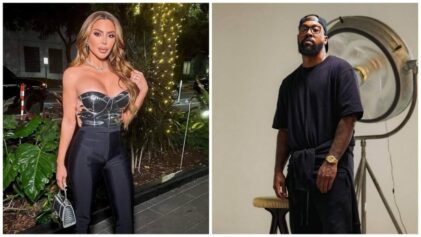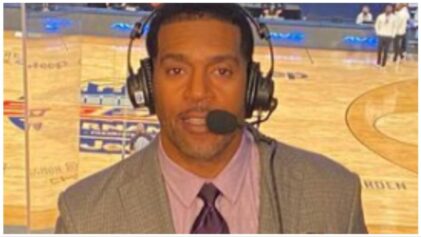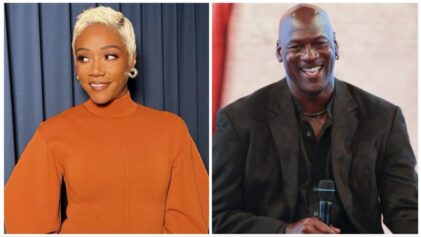I once had the displeasure of meeting Donald Sterling, disgraced owner of the Los Angeles Clippers. I walked away feeling that he was a buffoon.
Now the whole world sees what I saw way back in the early 1990s at the old Sports Arena in L.A.: a pathetic old man with the moral fiber of a Klansman.
Back then, he was widely considered an embarrassment to the league, an owner who was notoriously cheap, misguided and slimy. The NBA wanted him out, but could not muster a legitimate reason.
Well, it has one now. The question is how much can the league do beyond fining and suspending him for the rest of the playoffs—or even all of next season?
Marge Schott, once the owner of the Cincinnati Reds, was forced to sell her share of the team after a series of vile remarks about Jews, gays, Blacks. . . you name it. Yes, Schott was that bad.
Sterling has entered Schott’s zone. Only thing surprising about the TMZ-released audio of Sterling telling his mistress to not socialize with Blacks in public, among other reprehensible notions, is that it took this long for his views to be revealed to the masses.
There have been clear indicators of Sterling’s racist mindset long before now, even though NBA legend Elgin Baylor served as his team’s general manager for years and Doc Rivers is his coach—both Black men in leadership positions.
At the same time, Sterling is the madman whose real estate companies twice were sued in discrimination cases by Blacks who sought to rent apartments he owned. Instead of fighting the claims, as an innocent person would, he paid out more than $7 million to make the lawsuits disappear.
Tells you a lot, right? (And how could the NAACP of Los Angeles have slated to honor Sterling next month for a lifetime achievement award? Really? Seriously?)
Still, the problem is, as much as so many people would like him to slink away like a diseased snake, it is unlikely he’s going anywhere—unless he decides the backlash is too much and sells the team. That move would garner him somewhere around a $500-million profit and the NBA –made up of 75 percent Black players and 44 percent Black coaches — would gain at least that much in relief that he is gone.
Magic Johnson and his group, CBS Sports reported, want to purchase the Clippers. Can’t happen if he won’t sell, though.
Why such fuss over an elderly man’s rants? Because it’s one thing to have such ugly, ignorant positions; it’s another for everyone to know you have such ugly, ignorant positions. The fact that he owns a team made up of Black players and that his “girlfriend” is Black and Mexican, harkens to dastardly slave-owners. That’s not a good look.
“It bothers me a lot that you want to broadcast that you’re associating with Black people. Do you have to?” the man believed to be Sterling says on the tape. “You can sleep with [Black people]. You can bring them in, you can do whatever you want. The little I ask you is not to promote it on that … (Instagram) and not to bring them to my games.”
President Obama, as usual, summed up Sterling beautifully: “When ignorant folks want to advertise their ignorance, you don’t really have to do anything. You just let them talk.”
Perhaps a positive that could come out of this is that high-profile athletes understand their value beyond the playing arena. Arguments have been made that the Clippers should have boycotted their playoff game against the Golden State Warriors on Sunday, which was a far-fetched notion.
The players are contracted to play. The fight has to be carried out by the powers that be in the NBA and the league owners, not the athletes. The players responsibility is to each other, to the team, the NBA and the fans, not Sterling. To boycott a game would have made a historic statement, but at what cost? It would have fouled up the playoff schedule, TV advertising and put them in a vulnerable legal position. Some would argue this case is worth that. Maybe not.
It’s quite easy for folks at home to muse that the players should boycott. A bigger statement can be made forevermore when the NBA players and other professional athletes bound together, form a union, council or organization that addresses racial profiling, bullying at school, voter fraud and other issues that merit a collective voice.
For too long the modern-day, high-profile athlete has been silent and gutless, taking the weak position of “I’m just an athlete” when social injustices arise. That should change now. The Clippers “protest” of Sterling Sunday—wearing black socks and wristbands and dumping their warmup jerseys at midcourt, revealing shirts worn inside-out to cover up “Clippers”—was a start, a show that they understand they needed to make a statement. Other teams in the playoffs wore black socks in unity with the Clippers, an even nicer start: Men coming together for more than sport, for the bigger issue.
Can they keep it up? Can they see that they can make a difference, advance causes, influence views, effect change? It’s easy to fire at Sterling; he’s a rancid, welcoming target. You know he’s an easy target when the do-nothing, say-nothing Michael Jordan (after embarrassingly initially issuing a “no comment”) chimes in.
So, if there is any justice, this buffoon from way back will be the impetus of pro athletes snapping out of their decades-long nod and becoming a voice of the disenfranchised. We can only hope.


